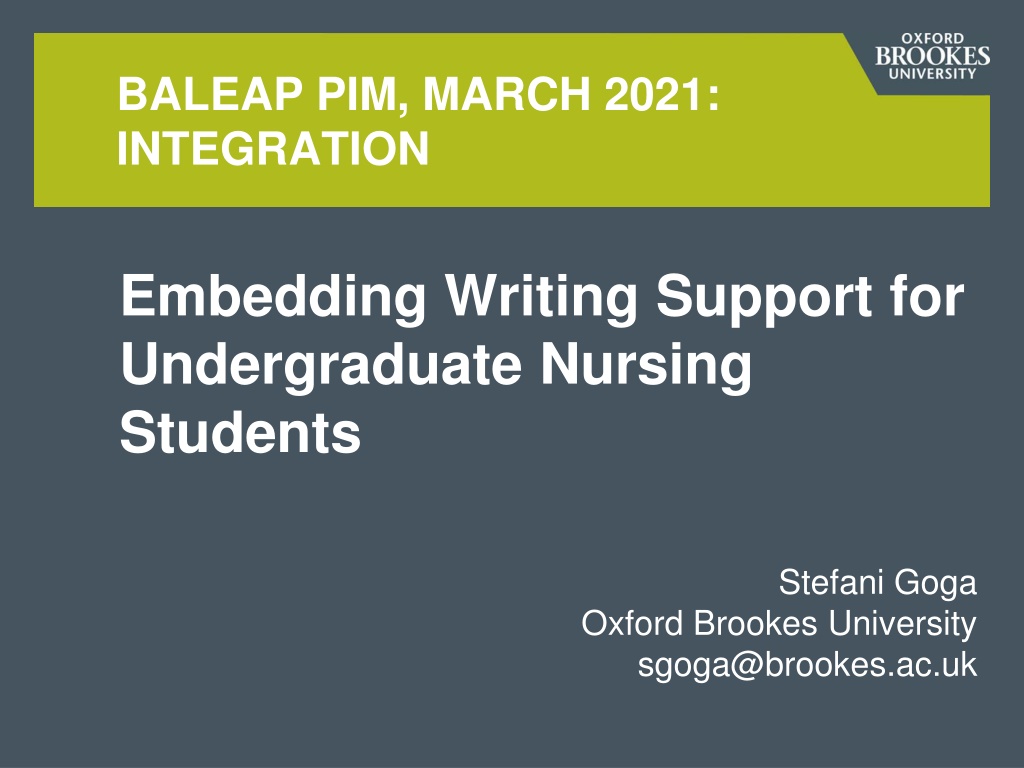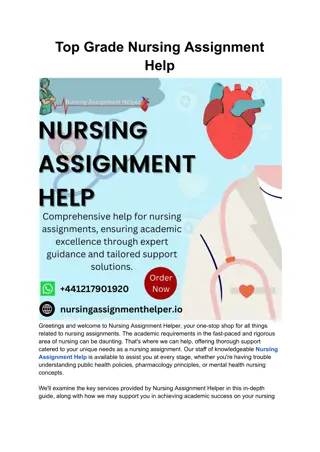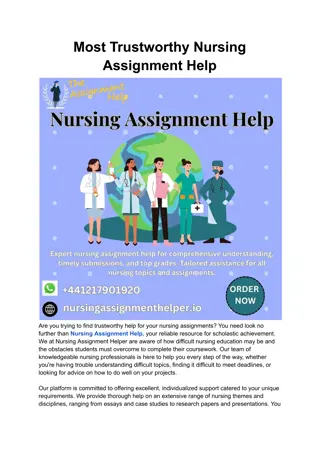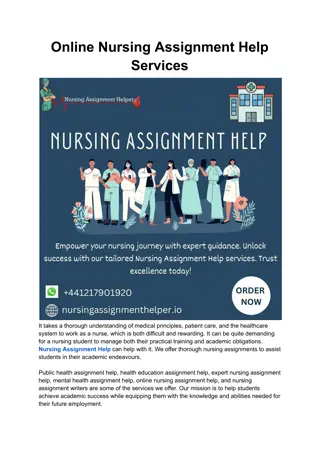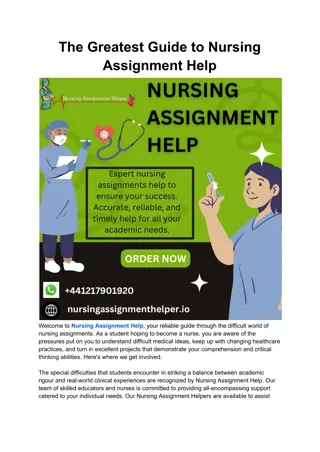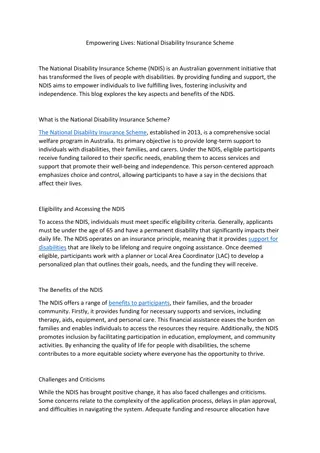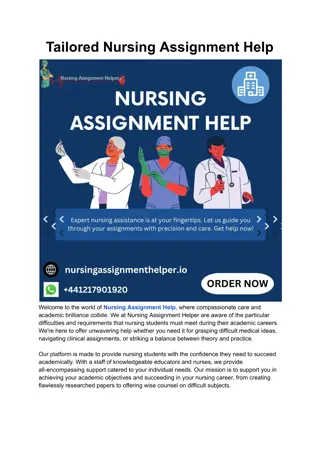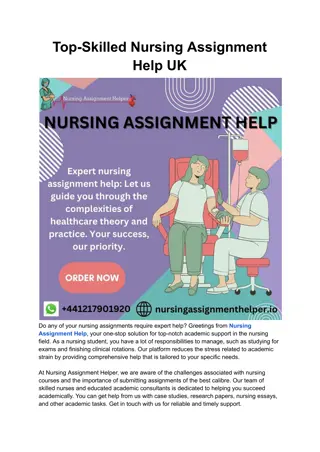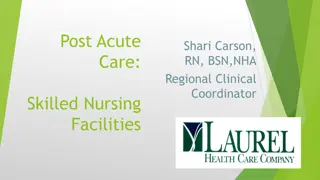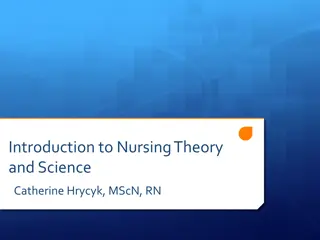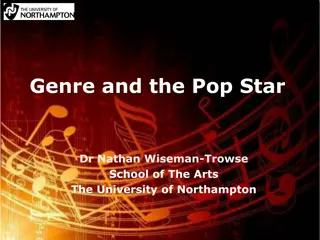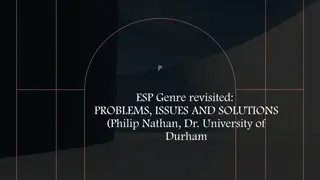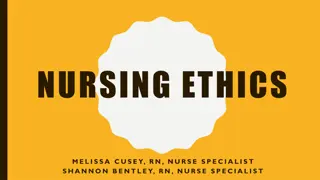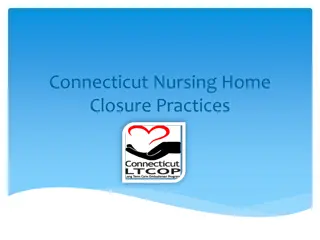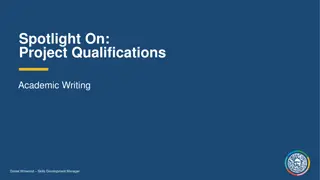Integrating Writing Support for Nursing Students: A Genre-Based Approach
Designing writing support for undergraduate nursing students involves understanding the cohort's unique needs, such as time constraints and diverse learning backgrounds. Using a genre-based approach, which focuses on analyzing specific student genres, can enhance instructional materials and improve students' writing skills. Techniques like high-scoring assignment exemplars and an assignment-based approach help students develop critical writing skills essential for healthcare professionals. The syllabus is tailored to address healthcare writing skills explicitly, linking theory to practice and improving students' academic writing abilities.
Download Presentation

Please find below an Image/Link to download the presentation.
The content on the website is provided AS IS for your information and personal use only. It may not be sold, licensed, or shared on other websites without obtaining consent from the author. Download presentation by click this link. If you encounter any issues during the download, it is possible that the publisher has removed the file from their server.
E N D
Presentation Transcript
BALEAP PIM, MARCH 2021: INTEGRATION Embedding Writing Support for Undergraduate Nursing Students Stefani Goga Oxford Brookes University sgoga@brookes.ac.uk
OUTLINE 1. Cohort profile and impact on course design 2. Pedagogical Approach and Task Example 3. Evaluation of Course Design 4. Recommendations 5. Key Reflection
Designing for the cohort Time-poor Carers/parents In employment Commuting UG Nursing Students Higher proportion of: Learning background - Gap since formal education - Recent transition through levels - Language learning Female applicants BAME applicants Mature applicants Entry via Access course Relationship to English L1, L2 (or L1.5)? Living off campus
Genre-based Approach = detailed analysis of small sets of texts from disciplinarily specific assessed student genres as the basis for the development of instructional materials (Tribble and Wingate, 2013) High-scoring assignment exemplar Mid-scoring assignment exemplar Assignment Brief Students already familiar with the texts No additional reading load Teach using exemplars appropriately
Assignment-based Approach = explicit teaching of the discourse features necessary to produce their first written assignment Assignment Structure: Rationale Introduction Part 1: Research Methodology Limited input time (15 hours) Complexity of the assignment Part 2: Pathophysiology Encourage early writing Part 3 Critical discussion Conclusion: Reflection patchwork text (Winter, 2003)
Healthcare Writing Linguistic Difficulties Showing their stance as writers Sociolinguistic Difficulties Projecting an impersonal voice Signalling the link between assignment task and their text Making the link between theory and practice Using language that reflects critical skills (Gimenez, 2008, p. 160)
Syllabus (Sessions 1-3) Address healthcare writing skills Extract from Academic Writing for Nursing syllabus: Practise general academic writing skills Explicit link to assignment
Evaluation of Materials Negatives Positives teaching uniformity achievable tasks based on sentences & paragraphs impact text coherence appropriate for self-study strong engagement due to assignment focus longevity/reusability? writing before understanding make abstract academic terms more tangible
STUDENT FEEDBACK Positives Suggestions focused on assignment more 1-1 support teaching: accessible to all longer course opportunity for feedback more convenient deadlines Key theme: Student Expectations I learnt much more than I anticipated would it s really important for [students] to attend sessions should be mandatory letting the student know the important of the module
RECOMMENDATIONS Integrate syllabus with core module - follow on from learning in lectures/seminars Integrate Nursing presence - signals that literacy is an essential part of the discipline (Tribble and Wingate, 2013) Integrate diverse English language identities - focus on academic skills and style not English competency - consider how to recruit for the course - use student testimonials Integrate assignment writing skills e.g. Interpreting a brief, using exemplars, managing deadlines
REFLECTION Which Community of Practice (CoP) academic or professional? any attempt at reconciling Academic Literacies with our students expectations needs to address the underlying assumption that students want to participate fully in an academic CoP, rather than their future professional CoPs [ ]. Our seemingly unacknowledged assumption about our students desire to join academic CoPs might, inadvertently, reflect our own identities as researchers [ ]. It does not take into account that most of our students will never experience this full participation, nor do they necessarily want to do so. (Canton, Govan and Zahn, 2018, pp. 676-677)
References Canton, U., Govan, M. and Zahn, D. (2018). Rethinking academic literacies. A conceptual development based on teaching practice, Teaching in Higher Education, 23(6), 668-684, DOI: 10.1080/13562517.2017.1414783 Gimenez, J. (2008). Beyond the academic essay: Discipline-specific writing in nursing and midwifery. Journal of English for Academic Purposes, 7, pp. 151-164. DOI:10.1016/j.jeap.2008.03.005 Lea, M. R. (2004). Academic literacies: a pedagogy for course design, Studies in Higher Education, 29(6), 739-756, DOI: 10.1080/0307507042000287230 Tribble, C. and Wingate, U. (2013). From text to corpus A genre-based approach to academic literacy instruction, System, 41(2) pp. 307-321, DOI: https://doi.org/10.1016/j.system.2013.03.001 Winter, R. (2003). Contextualizing the Patchwork Text: Addressing Problems of Coursework Assessment in Higher Education. Innovations in Education and Teaching International, 40(2) pp. 112 122. DOI: 10.1080/1470329031000088978
